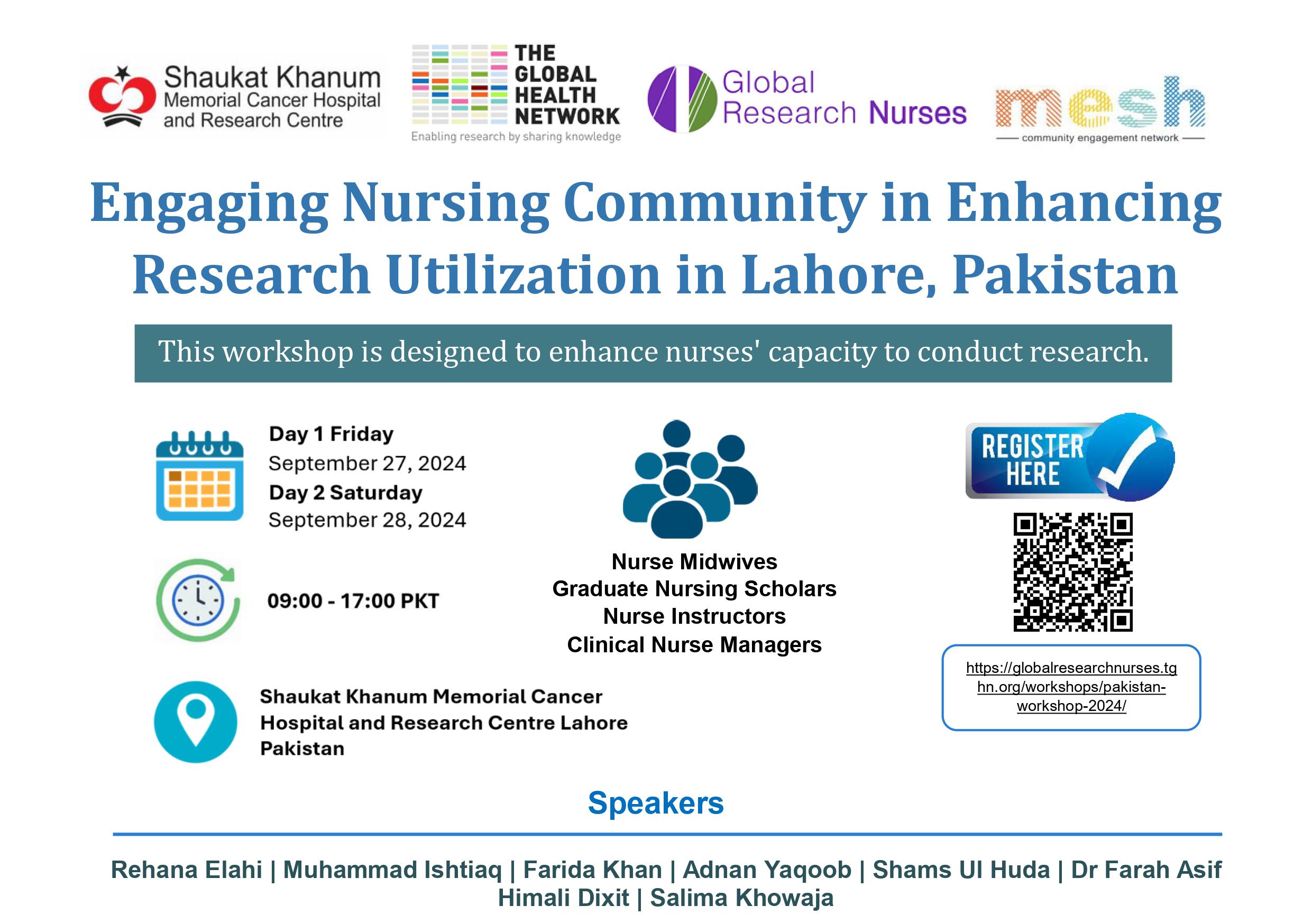
Engaging Nursing Community in Enhancing Research Utilization in Lahore, PakistanFor nurses and midwives
|
|
Workshop objectives and expected outcomes
This workshop represents a significant step in empowering nurses in Pakistan to lead and engage in research that will ultimately improve healthcare outcomes. |
|
Workshop outcome The workshops, held on September 27th and 28th, 2024, at the Shaukat Khanum Memorial Cancer Hospital & Research Centre in Lahore, aimed to enhance the research capacity of nurses and midwives in Pakistan following a training-the-trainer model and with a special focus on community engagement. The events were led by expert facilitators from SKMCH&RC, Shifa Tameer-e-Millat University Islamabad, and MESH. The workshop offered 7.5 Continuing Nursing Education (CNE)/Continuing Medical Education (CME) credit points, adding further value to participants' professional development. Workshops: The workshops focused on empowering nurses to integrate evidence-based research into their practice. The sessions combined theoretical knowledge with interactive activities, including group work, case studies, and poster presentations, fostering engagement and collaboration. Key Outcomes:
Attendance: Despite adverse weather conditions, the events saw 77 participants, including nursing officers, clinical managers, educators, and scholars from prominent institutions across Lahore, reflecting strong dedication and a wide-reaching impact. Recommendations:
Conclusion: These workshops marked a significant step toward enhancing nursing research capacity in Pakistan. By equipping participants with essential research skills and fostering a culture of evidence-based practice, it contributed to advancing healthcare delivery and patient outcomes. With 7.5 CNE/CME credit points, the workshops further supported professional development, encouraging participants to apply their newly gained knowledge to promote evidence-based practice and community health initiatives. The participants expressed a strong commitment to continuing professional development, highlighting the need for sustained efforts in nursing and midwifery research capacity strengthening initiatives. |
